Will a new breed of humans with extended lifespans, and who will possibly colonise space, exist in another 30 years? Joanna Lobo meets transhumans who hope for this reality.
As you read this, a conclave of 23 scientists, technologists and spiritual leaders have converged at the Lincoln Centre in New York. They will deliberate on several futuristic possibilities aimed at accelerating the invention of technologies that will enable humans to transit from our biological bodies to an increasingly advanced artificial self.
This sounds like something straight out of the latest Dan Brown novel, and it is (somewhat, but more on that later). But these discussions are part of real life too. The participants of this conclave, the Second International Global Future 2045 Congress or GF2045, believe that by the year 2045, humanity will enter a new era that will transform the way we live.
This may sound like gobbledygook to you but the world’s transhumans certainly don’t think so.
Transhumanism is a relatively new term but Dan Brown fans will find its doctrine familiar. The villain in Brown’s latest book Inferno, is a transhuman, a scientist with radical ideas of evolution and the future. But while this fictional transhuman’s role is negative, transhumans in the real world think of themselves as a positive bunch, especially about the future.
A better future
Transhumans see technology as the key to a better future. They believe it has the potential to rapidly extend one’s life and to provide humans with better physical and psychological abilities.
There are 10,000 to 25,000 transhumans in the world, estimates Hank Pellisier, founder of Transhumanity.net. Many of them are scientists, philosophers and science fiction writers.
India has probably six active transhumans (most of the 253 members in their Facebook group are researchers from across the world) .
Pellisier was attracted to transhumanity’s vision of a technology-driven future whose advantages include superlongevity, physical super-powers, “smart drugs” and a solution to environmental problems that plague us.
“Transhumanism is a belief,” says Kartik Soni, 27, a research associate with Delhi’s Council of Scientific and Industrial Research. “It’s the leap of faith that we can use technology to transform the current human value.”
Transhumanist Siddartha S Verma, 23, who is pursuing his postgraduation in physics from Australia, wants his research to contribute to the vision of Transhumanity. “Researchers predict that at some point in the future, artificial intelligence will be so advanced that progress will be quicker,” he says.
Researcher Avinash K Singh grew up fascinated by science fiction. A chance encounter with Dr Kevin Warwick, who claims to be the world’s first cyborg (a living being who has enhanced abilities due to technology), changed his life. “He has an embedded chip in his arm through which he communicates with devices around him,” he says. Singh was hooked.
A fruitless search for something similar in India led him to start his own lab, MIL (Machine Intelligence & Learning). “That’s when I realised that there were others abroad doing similar work... and people like me were actually called transhumans,” says Singh.
Research at MIL Labs focuses on the interface between humans and computers on devices to enhance the brain’s capabilities and artificial intelligence. “Why be human when you can be something better? With enhanced physical and mental capacities, we will have fewer deficiencies and more capabilities. We will possess the ability to become more like machines. And we’ll be better for it,” he says.
Forever young
One aspect of transhumanism that appeals to most of its followers is its work in the
medical field.
Soni, who has a PhD in biotechnology, believes the transhumanism approach is the best way to treat diseases. “Did you know that using a 3D printer, scientists were able to build an airway for a patient who was unable to breathe? Or that you could use it to make 3D models of tissue?” he asks, with excitement in his voice.
Singh believes further research in the field of stem cells, genetics, artificial intelligence and nanotechnology has the potential to help humans overcome “limitations” like ageing, disease, limited memory power etc.
Ongoing scientific research of interest to transhumans include the prototype of a mask that gives you superhuman sight and hearing, artificial electric skin that can help robots feel, electronic sensors printed directly on the skin that can help monitor health during daily activities, a micro particle that can be injected into the skin that helps oxygenate blood even when oxygen isn’t available and a wearable pain relief patch.
“This is progress,” says Verma.
Medically speaking
Benefits notwithstanding, transhumanism has been called “the world’s most dangerous idea” by its critics. People question the ethics of developing a better breed of humans, of comparing humans to machines. Others accuse its philosophy of being an affront to human nature, and highlight the prospect of technology going rogue. In short, critics don’t like it that transhumanists are “playing God”.
“But what’s wrong with that?” quips Verma. “Realistically speaking, nanotechnology, robotics, AI, biotech... are just another aspect of advancement.” He believes that such fears are unfounded since rules and regulations will prevent unethical scenarios.
Another thread of criticism looks at the environmental impact of superhumans with extended lifespans. After all, with the earth already burdened with the existence of normal human beings, what toll will superhumans have on our planet?
Transhumans have an answer for that too: the colonisation of space. “There may be a point in the future when, with upgraded bodies, humans can live in space. Also, with the use of molecular engineering and nanotechnology, we can find out a way to reduce waste or pollution, which would be ecologically sustainable,” says Singh.
As a wise man once said: only time will tell.
![submenu-img]() Arshdeep Singh, Suryakumar Yadav shine as India romp into Super 8s of T20 World Cup 2024 by thrashing USA
Arshdeep Singh, Suryakumar Yadav shine as India romp into Super 8s of T20 World Cup 2024 by thrashing USA![submenu-img]() Why Rohit Sharma and Co. were awarded 5 penalty runs during IND vs USA T20 World Cup 2024 match?
Why Rohit Sharma and Co. were awarded 5 penalty runs during IND vs USA T20 World Cup 2024 match?![submenu-img]() Rituparna Sengupta opens up on her chemistry with Prosenjit Chatterjee, talks about their 50th film Ajogyo | Exclusive
Rituparna Sengupta opens up on her chemistry with Prosenjit Chatterjee, talks about their 50th film Ajogyo | Exclusive![submenu-img]() DNA TV Show: How fire broke in Kuwait building that killed 49 people including Indians
DNA TV Show: How fire broke in Kuwait building that killed 49 people including Indians![submenu-img]() Virat Kohli achieves unwanted record during IND vs USA T20 World Cup 2024 match
Virat Kohli achieves unwanted record during IND vs USA T20 World Cup 2024 match![submenu-img]() Meet man, security guard’s son who cracked UPSC exam in first attempt by studying from borrowed books, he is posted as..
Meet man, security guard’s son who cracked UPSC exam in first attempt by studying from borrowed books, he is posted as..![submenu-img]() Meet woman who once worked as receptionist, cracked UPSC exam to become IPS officer, secured AIR...
Meet woman who once worked as receptionist, cracked UPSC exam to become IPS officer, secured AIR...![submenu-img]() Meet genius, only Indian nominated for Nobel by CV Raman, did not win due to...
Meet genius, only Indian nominated for Nobel by CV Raman, did not win due to...![submenu-img]() TS TET Result 2024: Telangana TET results declared, check direct link, pass percentage
TS TET Result 2024: Telangana TET results declared, check direct link, pass percentage![submenu-img]() UGC says Indian universities can offer admission twice a year starting from...
UGC says Indian universities can offer admission twice a year starting from...![submenu-img]() DNA Verified: Did Kangana Ranaut party with gangster Abu Salem? Actress reveals who's with her in viral photo
DNA Verified: Did Kangana Ranaut party with gangster Abu Salem? Actress reveals who's with her in viral photo![submenu-img]() DNA Verified: New Delhi Railway Station to be closed for 4 years? Know the truth here
DNA Verified: New Delhi Railway Station to be closed for 4 years? Know the truth here![submenu-img]() DNA Verified: Did RSS chief Mohan Bhagwat praise Congress during Lok Sabha Elections 2024? Know the truth here
DNA Verified: Did RSS chief Mohan Bhagwat praise Congress during Lok Sabha Elections 2024? Know the truth here![submenu-img]() DNA Verified: Is CAA an anti-Muslim law? Centre terms news report as 'misleading'
DNA Verified: Is CAA an anti-Muslim law? Centre terms news report as 'misleading'![submenu-img]() DNA Verified: Lok Sabha Elections 2024 to be held on April 19? Know truth behind viral message
DNA Verified: Lok Sabha Elections 2024 to be held on April 19? Know truth behind viral message![submenu-img]() How Kalki 2898 AD makers dared to dream pan-India with its unique promotional campaign for Prabhas-starrer
How Kalki 2898 AD makers dared to dream pan-India with its unique promotional campaign for Prabhas-starrer![submenu-img]() In pics: Prabhas' robotic car Bujji from Kalki 2898 AD takes over Mumbai streets, fans call it 'India's Batmobile'
In pics: Prabhas' robotic car Bujji from Kalki 2898 AD takes over Mumbai streets, fans call it 'India's Batmobile'![submenu-img]() Streaming This Week: Bade Miyan Chote Miyan, Maidaan, Gullak season 4, latest OTT releases to binge-watch
Streaming This Week: Bade Miyan Chote Miyan, Maidaan, Gullak season 4, latest OTT releases to binge-watch![submenu-img]() Lok Sabha Elections 2024 Result: From Smriti Irani to Mehbooba Mufti, these politicians are trailing in their seats
Lok Sabha Elections 2024 Result: From Smriti Irani to Mehbooba Mufti, these politicians are trailing in their seats![submenu-img]() Lok Sabha Elections 2024: 6 states with highest number of seats
Lok Sabha Elections 2024: 6 states with highest number of seats![submenu-img]() Lok Sabha Elections 2024: What are exit polls? When and how are they conducted?
Lok Sabha Elections 2024: What are exit polls? When and how are they conducted?![submenu-img]() DNA Explainer: Why was Iranian president Ebrahim Raisi seen as possible successor to Ayatollah Khamenei?
DNA Explainer: Why was Iranian president Ebrahim Raisi seen as possible successor to Ayatollah Khamenei?![submenu-img]() DNA Explainer: Why did deceased Iranian President Ebrahim Raisi wear black turban?
DNA Explainer: Why did deceased Iranian President Ebrahim Raisi wear black turban?![submenu-img]() Iran President Ebrahim Raisi's death: Will it impact gold, oil prices and stock markets?
Iran President Ebrahim Raisi's death: Will it impact gold, oil prices and stock markets?![submenu-img]() Haryana Political Crisis: Will 3 independent MLAs support withdrawal impact the present Nayab Saini led-BJP government?
Haryana Political Crisis: Will 3 independent MLAs support withdrawal impact the present Nayab Saini led-BJP government?![submenu-img]() Rituparna Sengupta opens up on her chemistry with Prosenjit Chatterjee, talks about their 50th film Ajogyo | Exclusive
Rituparna Sengupta opens up on her chemistry with Prosenjit Chatterjee, talks about their 50th film Ajogyo | Exclusive![submenu-img]() Anand Mahindra rides Prabhas' futuristic car Bujji from Kalki 2898 AD, video goes viral
Anand Mahindra rides Prabhas' futuristic car Bujji from Kalki 2898 AD, video goes viral![submenu-img]() Anurag Kashyap reacts to Pankaj Jha's 'spineless' remark for replacing him in Gangs of Wasseypur: 'We could not...'
Anurag Kashyap reacts to Pankaj Jha's 'spineless' remark for replacing him in Gangs of Wasseypur: 'We could not...'![submenu-img]() Watch: Real Chandu Champion Murlikant Petkar gets teary-eyed after first screening of Kartik Aaryan-starrer biopic
Watch: Real Chandu Champion Murlikant Petkar gets teary-eyed after first screening of Kartik Aaryan-starrer biopic![submenu-img]() Who is Pavithra Gowda? Failed actress, fashion designer, Kannada star Darshan's 'wife', arrested with him in murder case
Who is Pavithra Gowda? Failed actress, fashion designer, Kannada star Darshan's 'wife', arrested with him in murder case![submenu-img]() Nita Ambani wears emerald-diamond necklace for Anant Ambani-Radhika Merchant's second pre-wedding bash, its price is...
Nita Ambani wears emerald-diamond necklace for Anant Ambani-Radhika Merchant's second pre-wedding bash, its price is...![submenu-img]() India ‘robbed’ of FIFA World Cup 2026 seat? Netizens blast disputed goal by Qatar, slam referee
India ‘robbed’ of FIFA World Cup 2026 seat? Netizens blast disputed goal by Qatar, slam referee![submenu-img]() Viral video: Rare two-headed snake in zoo shocks internet, watch
Viral video: Rare two-headed snake in zoo shocks internet, watch![submenu-img]() Mukesh Ambani, Nita Ambani's family drinks milk of this cow breed every day, price per litre is a whopping Rs..
Mukesh Ambani, Nita Ambani's family drinks milk of this cow breed every day, price per litre is a whopping Rs..![submenu-img]() NASA warns about 1400-foot asteroid rapidly approaching Earth, but the good news is...
NASA warns about 1400-foot asteroid rapidly approaching Earth, but the good news is...









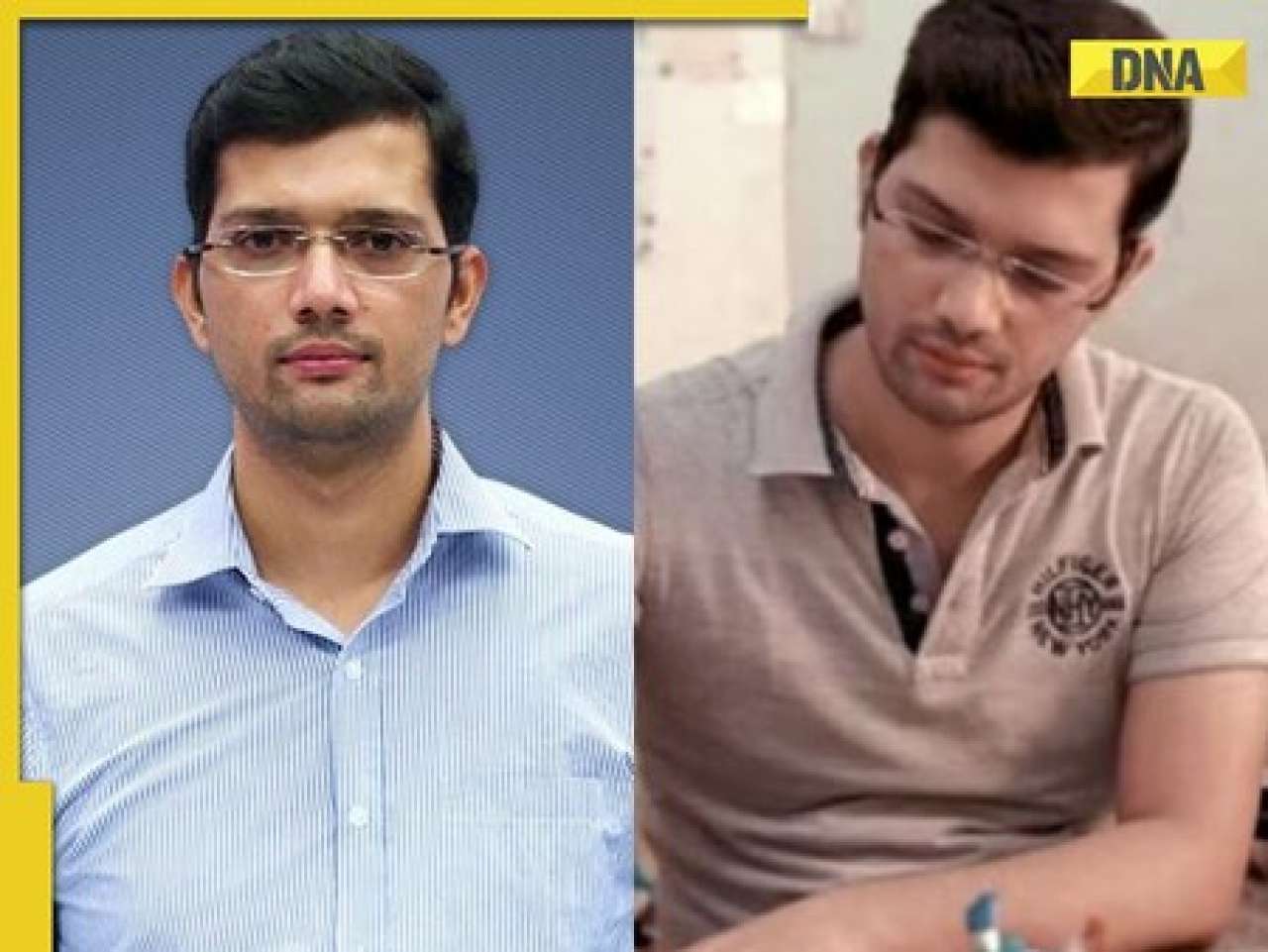

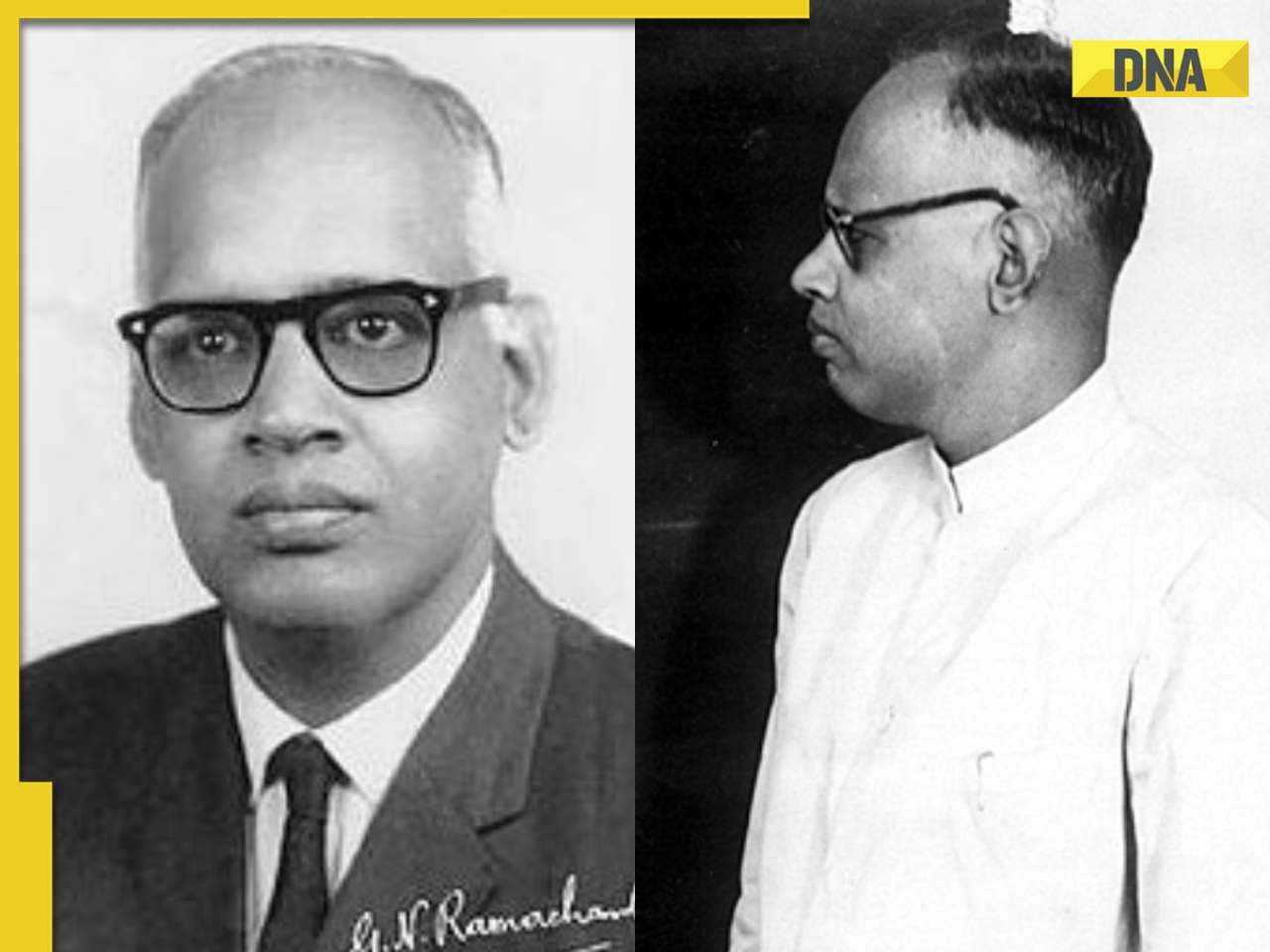








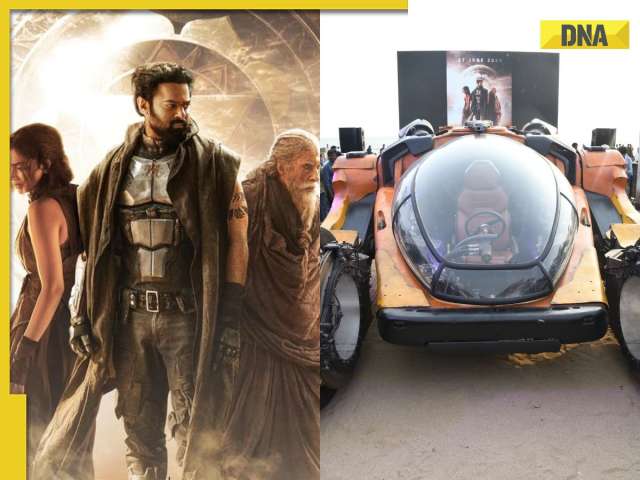


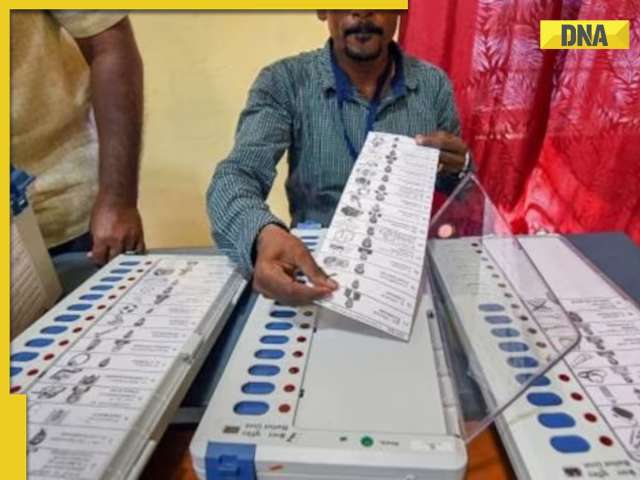





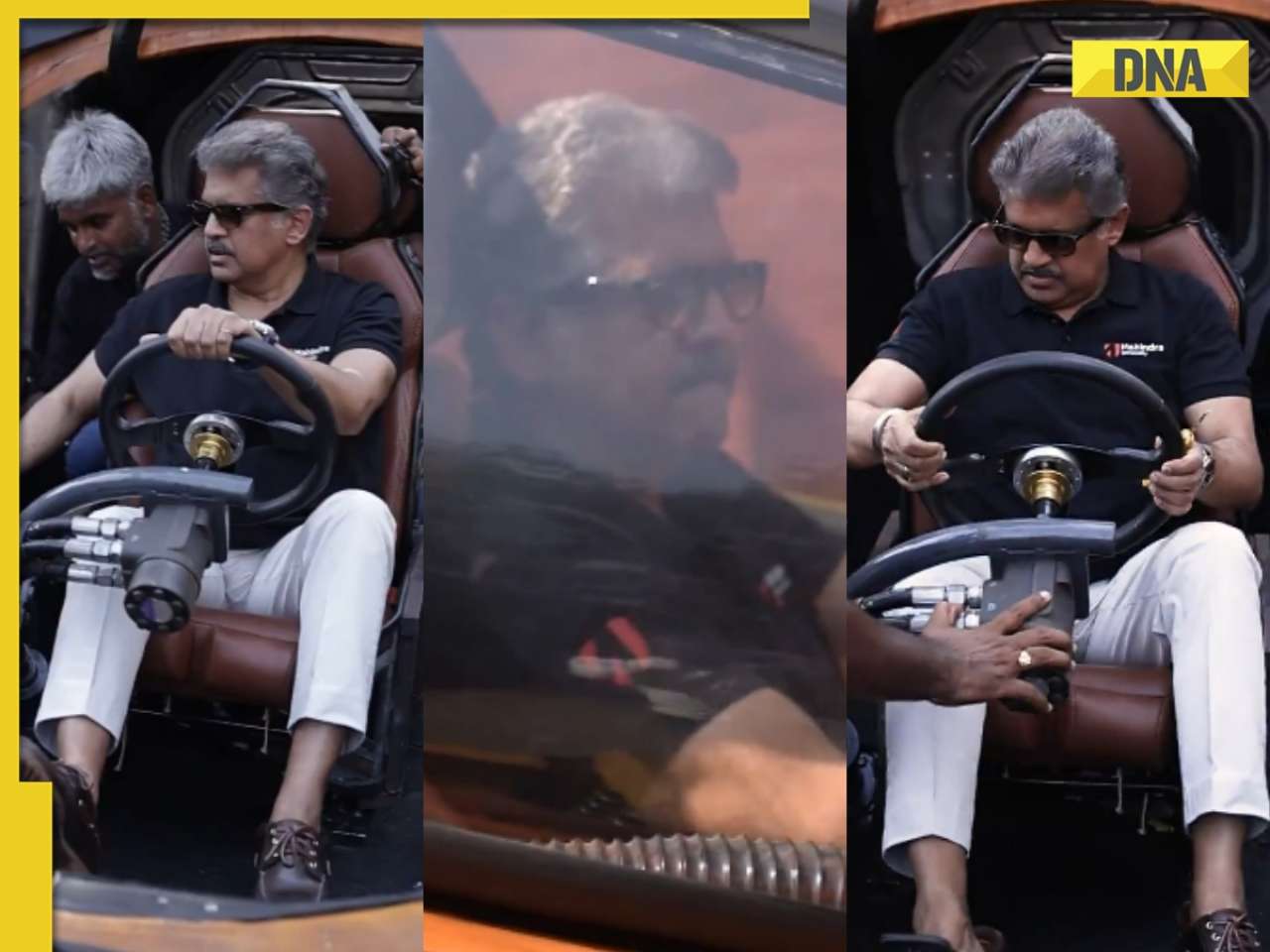





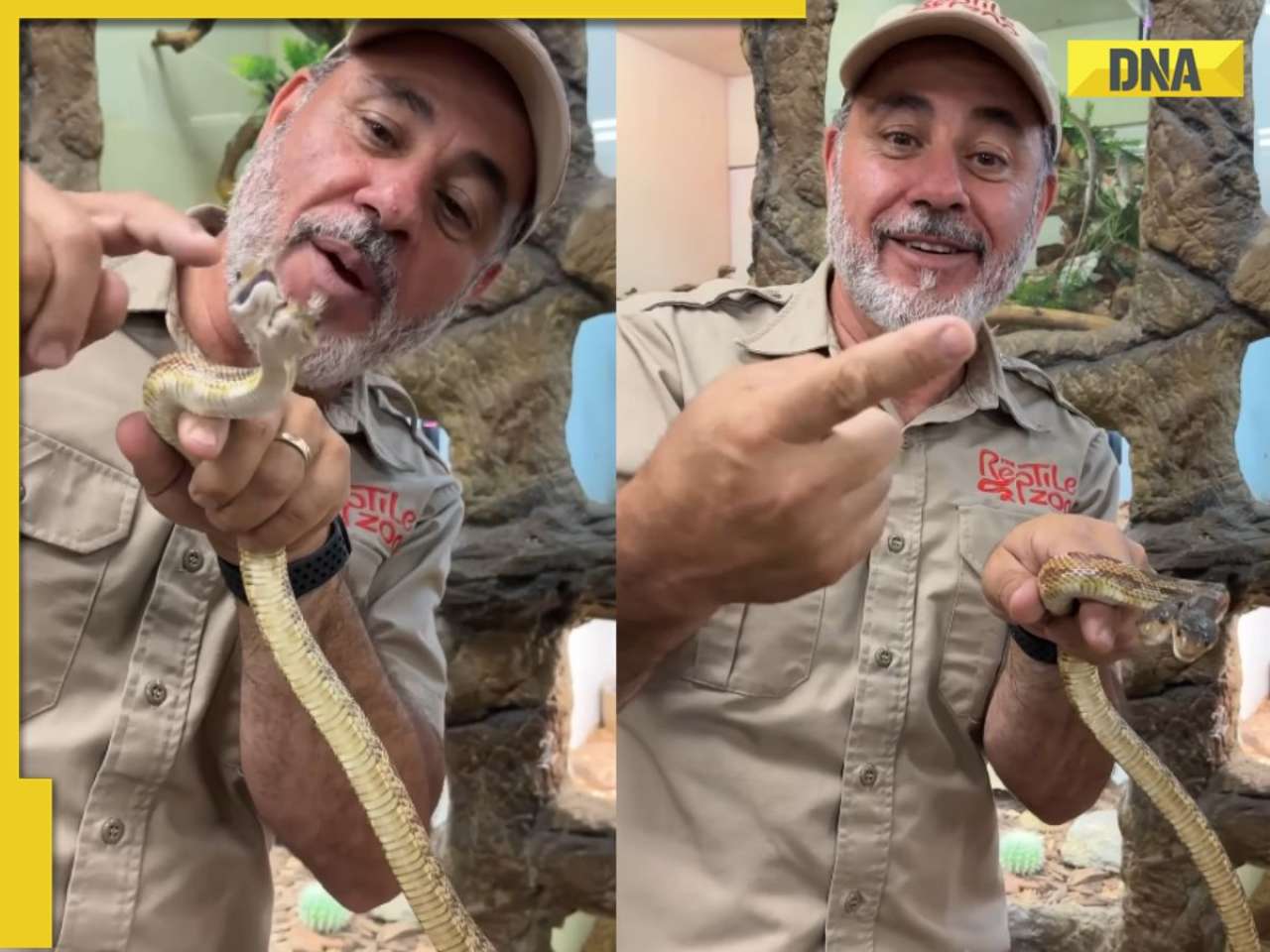

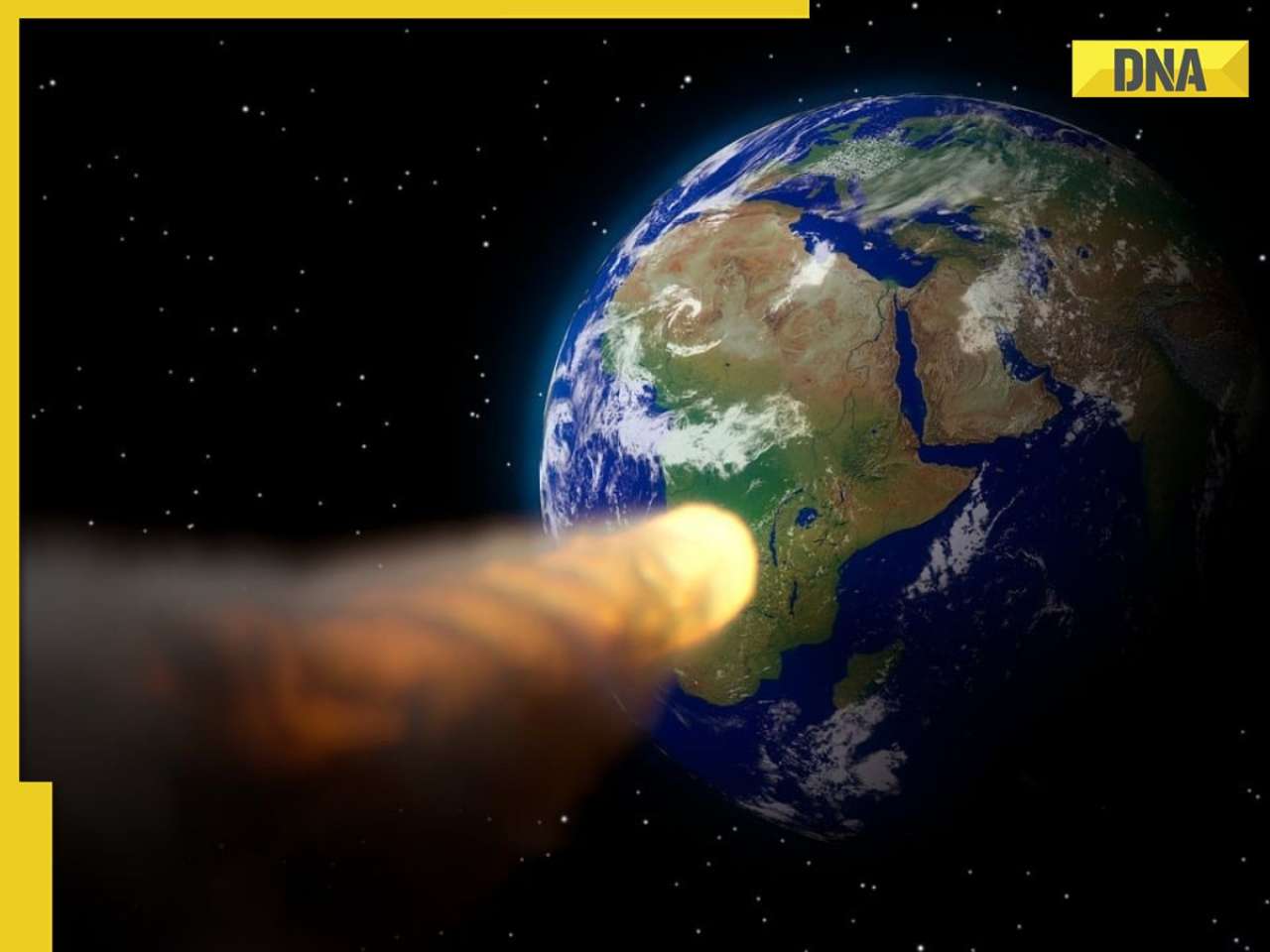

)







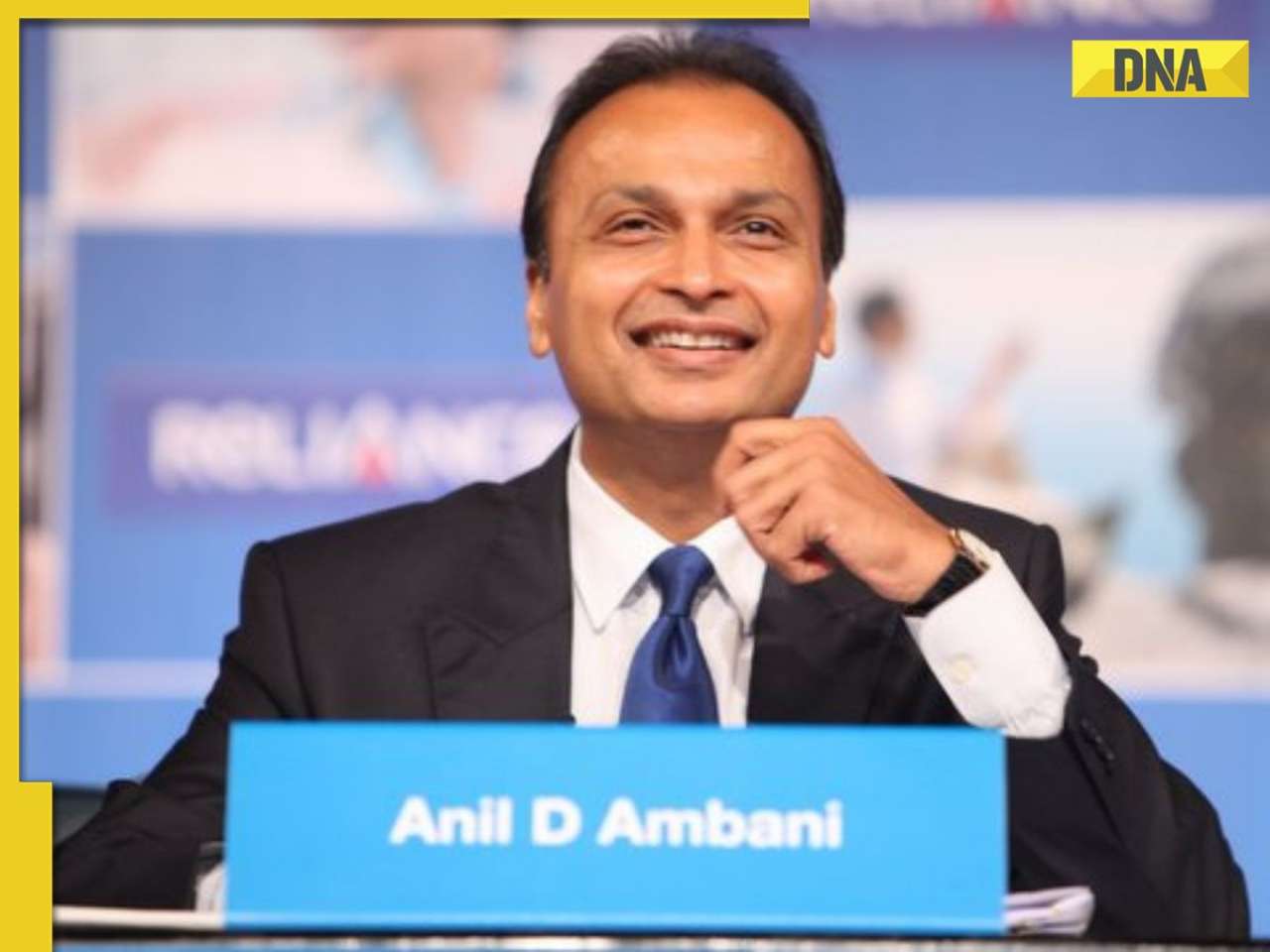

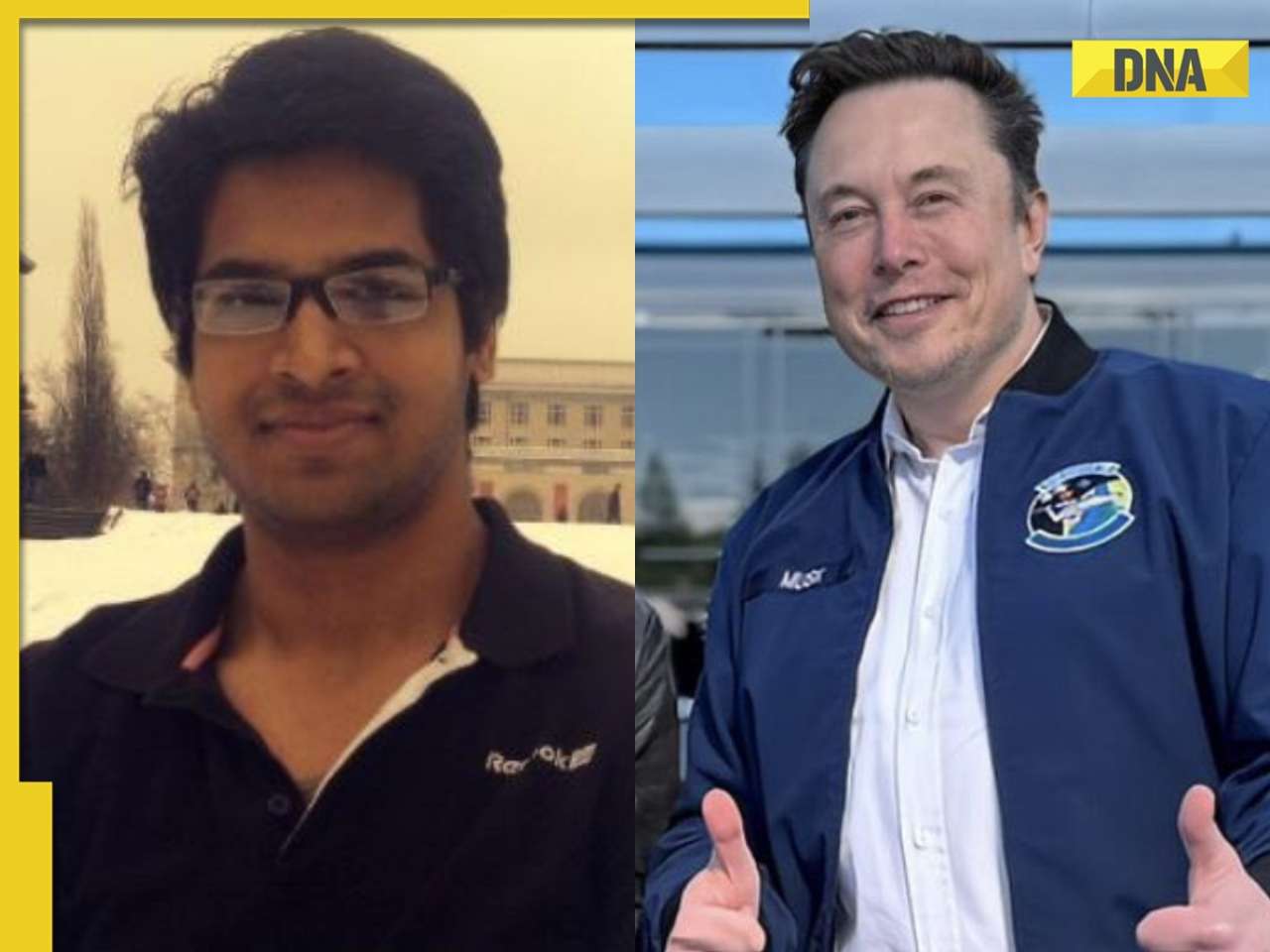







)
)
)
)
)
)